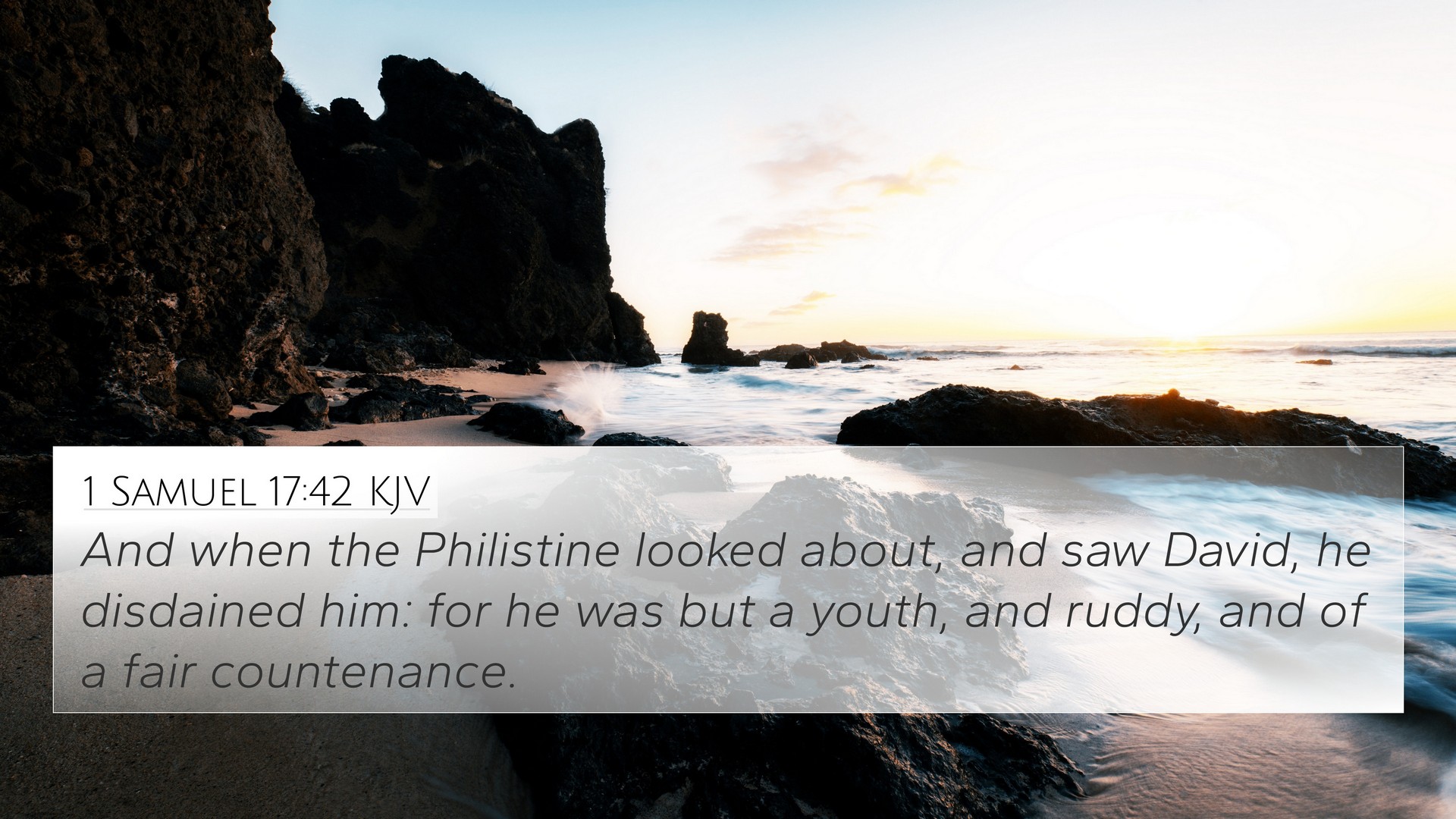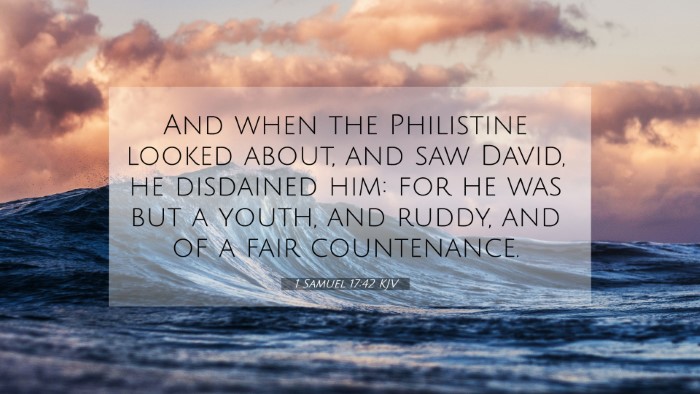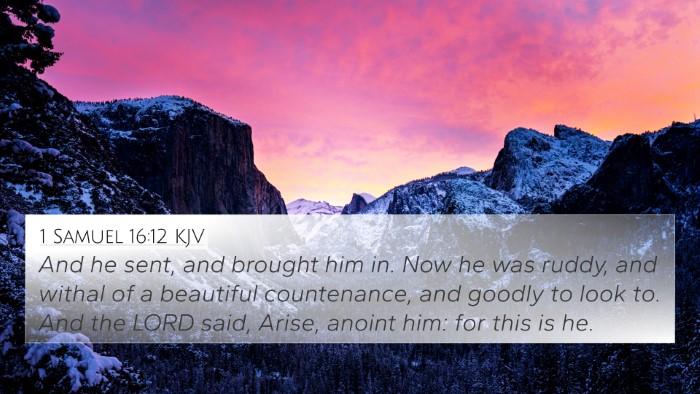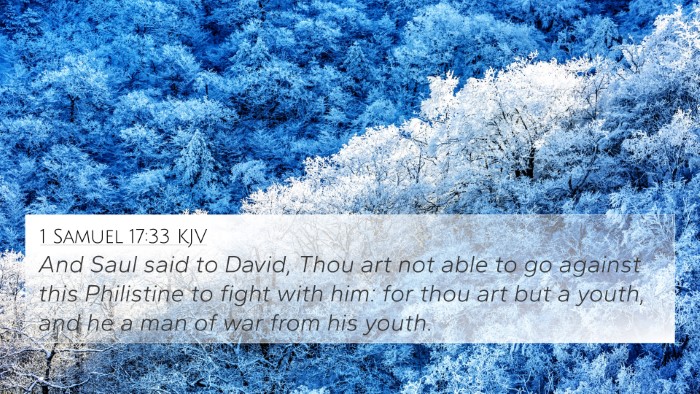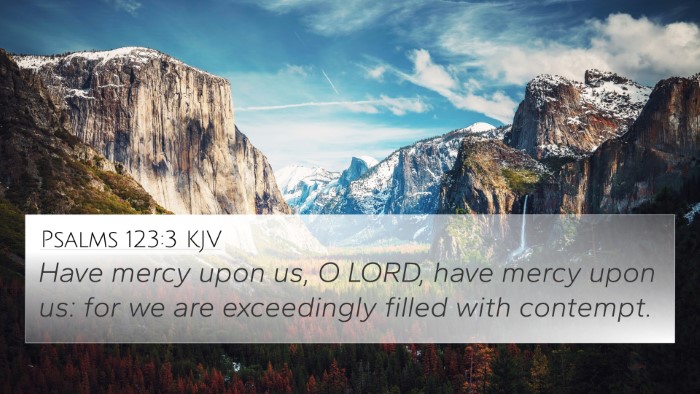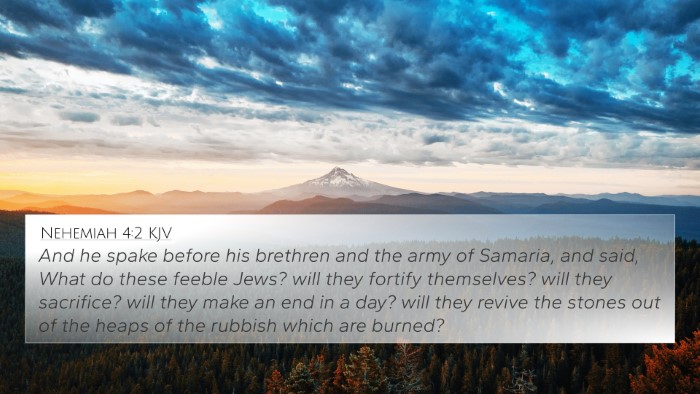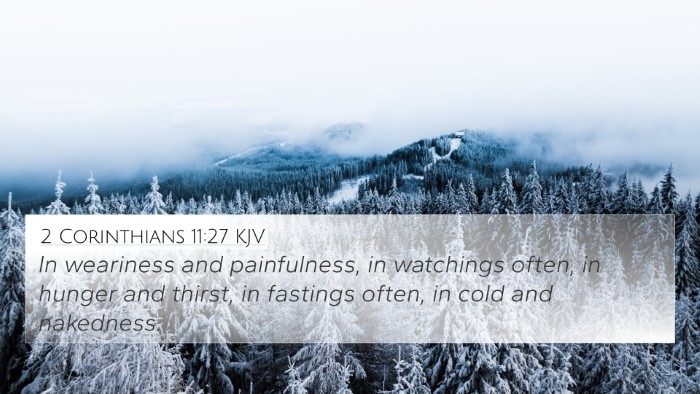Meaning and Interpretation of 1 Samuel 17:42
The verse 1 Samuel 17:42 states: "And when the Philistine looked about, and saw David, he disdained him: for he was but a youth, and ruddy, and of a fair countenance."
This verse captures a pivotal moment in the narrative of David and Goliath, revealing the contempt that Goliath had for David based on his youthful appearance. The implications of this moment extend beyond the battlefield, serving as a rich ground for analysis and cross-referencing with other biblical texts.
Commentary Insights
-
Matthew Henry's Commentary:
Henry reflects on Goliath’s arrogance, emphasizing that the enemy underestimated David due to his youth. This serves to remind readers that God’s strength often operates through seemingly weak vessels. The disdain showed by Goliath represents a common theme where worldly wisdom clashes with divine purpose.
-
Albert Barnes' Commentary:
Barnes highlights the disdain Goliath exhibits, pointing out that it is not uncommon for those in power to look down upon those they see as inferior. This instance teaches a lesson about the dangers of pride and the importance of recognizing that God can empower the meek against the mighty.
-
Adam Clarke's Commentary:
Clarke expands on Goliath’s appearance and demeanor, suggesting that behind his intimidation tactics lies a false sense of security. He notes that David's youth, rather than being a disadvantage, plays a pivotal role in demonstrating that God does not choose the mighty to do His bidding but rather the humble.
Thematic Bible Verse Connections
This verse can be interconnected with several key biblical themes and verses, illustrating the deeper theological implications regarding God's choice and human perception.
-
1 Samuel 16:7: "But the Lord said to Samuel, 'Do not look on his appearance or on the height of his stature, because I have rejected him. For the Lord sees not as man sees: man looks on the outward appearance, but the Lord looks on the heart.'"
-
Psalms 147:10-11: "His delight is not in the strength of the horse, nor his pleasure in the legs of a man, but the Lord takes pleasure in those who fear him, in those who hope in his steadfast love."
-
1 Corinthians 1:27: "But God chose what is foolish in the world to shame the wise; God chose what is weak in the world to shame the strong."
-
Matthew 11:25: "At that time Jesus declared, 'I thank you, Father, Lord of heaven and earth, that you have hidden these things from the wise and understanding and revealed them to little children.'"
-
Romans 8:31: "What then shall we say to these things? If God is for us, who can be against us?"
-
Philippians 4:13: "I can do all things through him who strengthens me."
-
2 Corinthians 12:9: "But he said to me, 'My grace is sufficient for you, for my power is made perfect in weakness.' Therefore I will boast all the more gladly of my weaknesses, so that the power of Christ may rest upon me."
Cross-Referencing Biblical Texts
The insights derived from 1 Samuel 17:42 can be enriched through a comprehensive study of related scriptures that demonstrate the theme of divine empowerment in the face of human scorn and underestimation.
Utilizing tools for Bible cross-referencing can help trace these interconnected themes across both the Old and New Testaments. Below are recommended methods and tools for effective cross-reference studies:
-
Bible Concordance: Provides an index of words and phrases along with their occurrences in various scriptures.
-
Cross-Reference Bible Study: Encourages readers to find related verses and explore thematic links between different parts of the Bible.
-
Comprehensive Bible Cross-Reference Materials: Utilize tools that illustrate inter-Biblical dialogues, revealing connections you may not have considered.
-
Bible Reference Resources: Utilize reference books that summarize connections and themes for deeper study.
-
How to use Bible Cross-References: Develop methodologies for cross-referencing by theme, word, or context to enhance understanding.
Conclusion
In summary, 1 Samuel 17:42 not only highlights the precarious moment in the David and Goliath saga, but it also serves as a profound lesson in humility, divine strength, and the divine choice of the undervalued. Reflecting on this verse through various commentaries and cross-referencing tools offers a richer understanding of its place in the larger biblical narrative and thematic explorations. By examining this verse, readers can better comprehend the implications of God’s work in our lives, regardless of how we may appear to the world.
